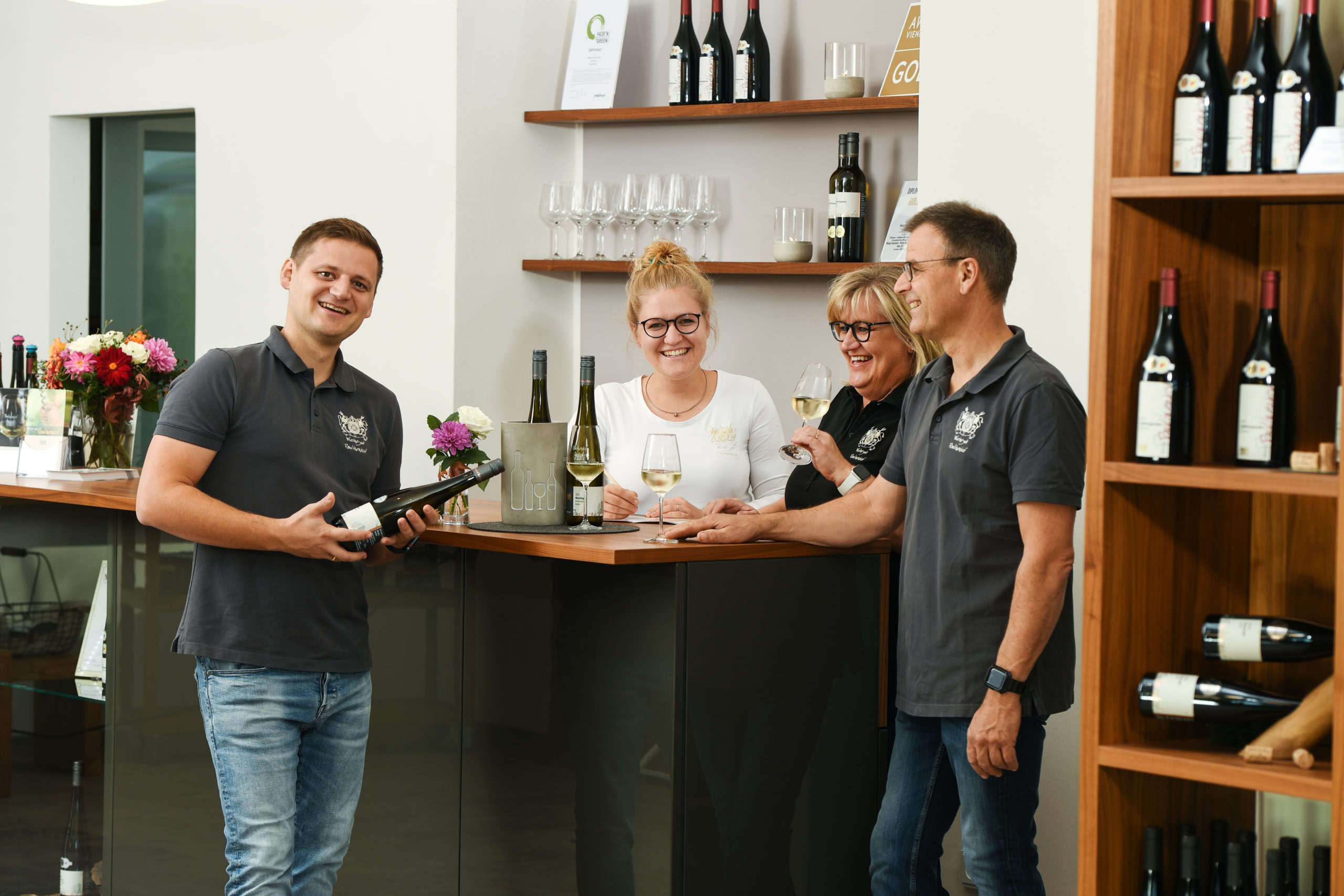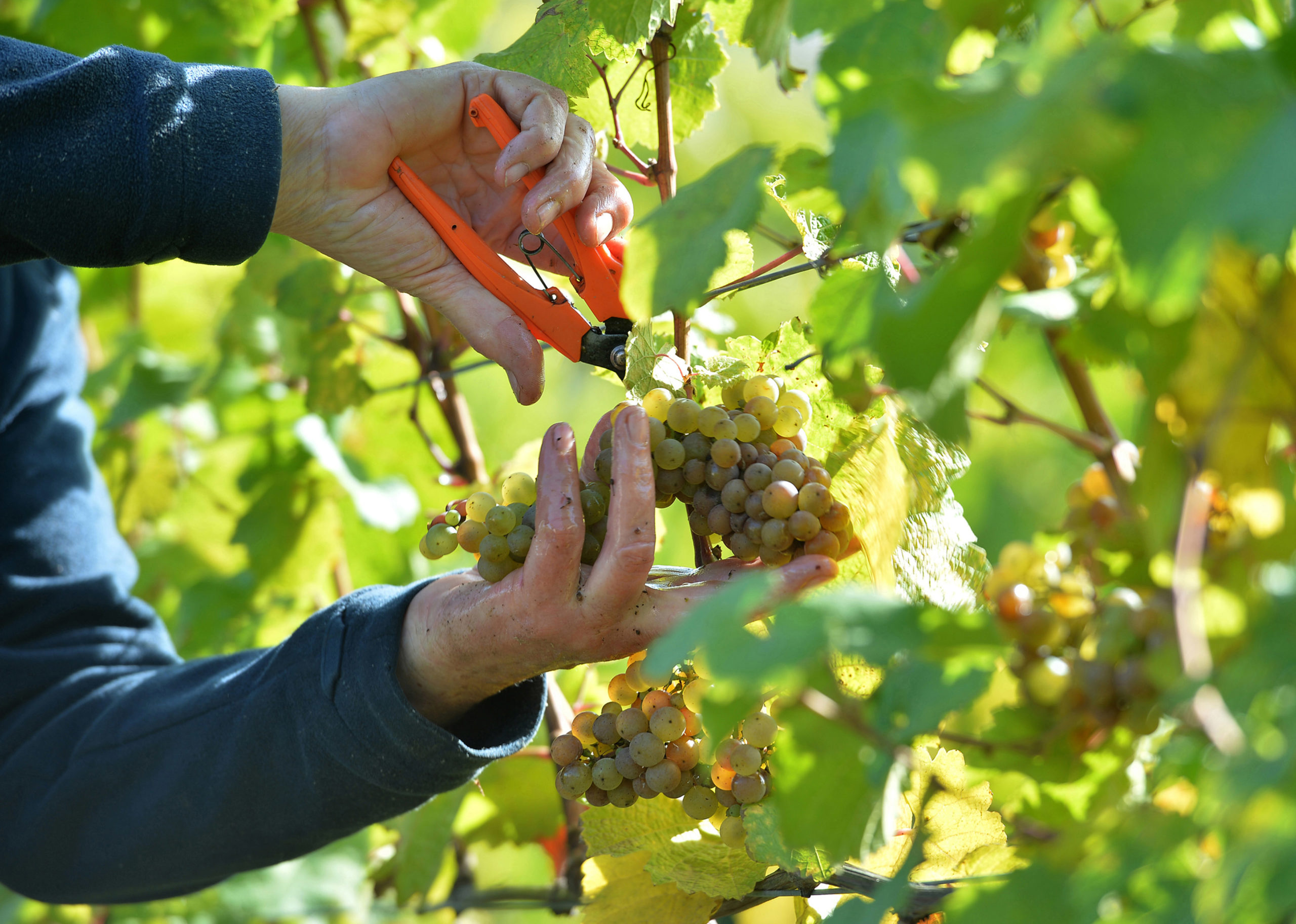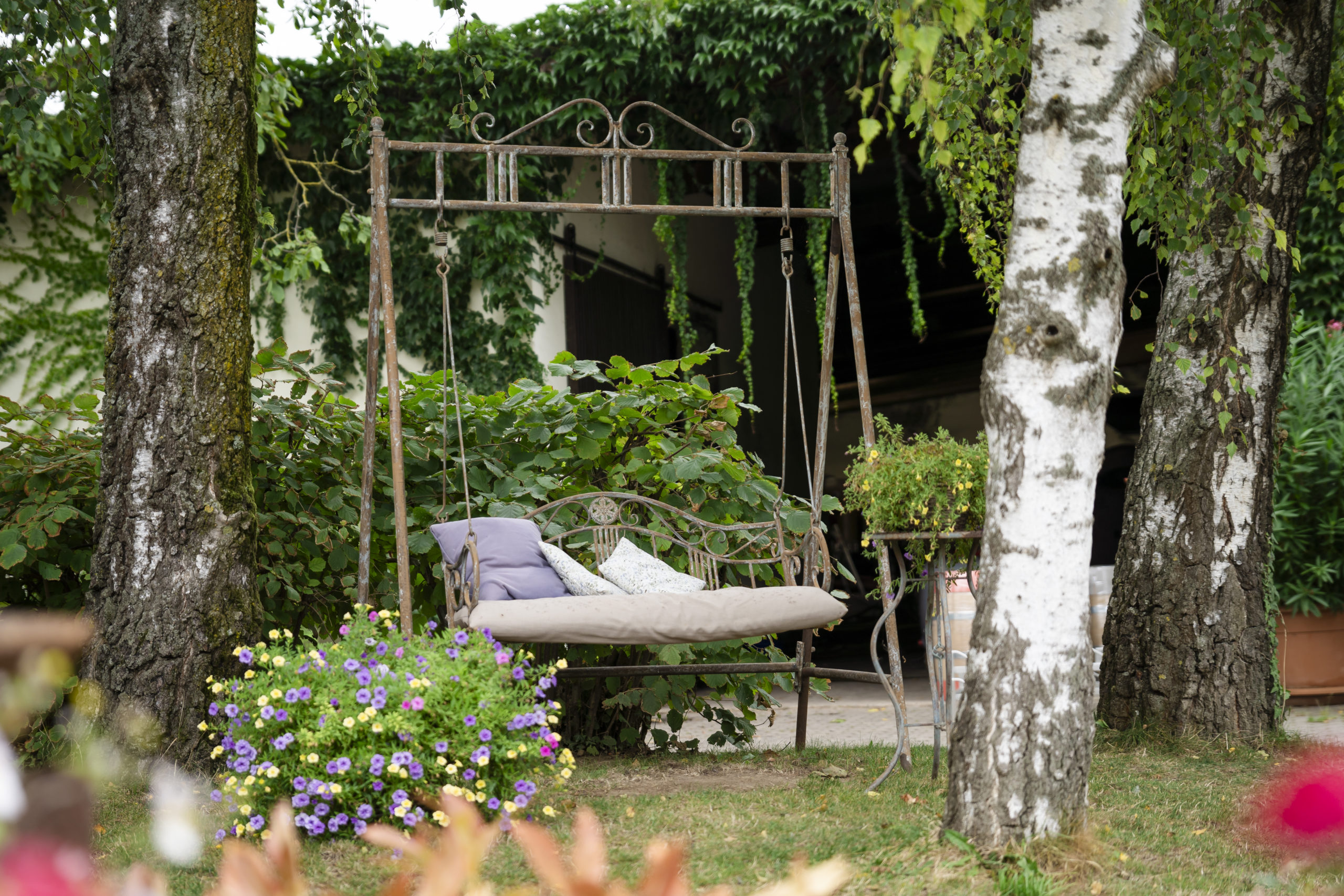Visitors to the Paulinenhof in Selzen, Rheinhessen, experience what sustainability feels like as soon as they arrive: at the champagne reception in the blooming garden, wine lovers enjoy the sparkling wine in a natural setting with tantalising aromas. The attractive grounds inspire with many small niches and cosy corners – it feels like a ‘green living room’. The vinotheque and the garden form a single unit: in the vinotheque, the view of the greenery is fascinating, and from the outside perspective, visitors can keep an eye on the bottles of wine. ‘The whole family is into gardening – but my mum Ina is the mastermind behind the planting!’ explains Master Oenologist Tim Bernhard.
A sustainable family winery
Viticulture has been practised in this classic family business since 1762 – the tasks are clearly divided: Winemaker and operations manager Rolf Bernhard looks after the vineyards, son Tim is the cellar master, his wife Silja and brother-in-law Halit help out at the winery alongside their work for the Ministry of Agriculture and the Ministry of Transport, while mother Ina and daughter Pauline take care of the wine shop and events: ‘Our focus is on the winery experience,’ they say.
In the ‘Fair’n Green’ certified business, sustainability is not limited to climate-adapted planting in the garden – the concept includes all areas of the winery. Tim’s credo is: ‘For me, sustainability means deciding in each individual situation which solution is the most environmentally friendly!’ Thanks to the photovoltaic system, more than 90% of the energy required for the grape harvest is covered by solar energy. The winery goes to great lengths to store rainwater – a resource that is becoming increasingly precious in the face of climate change. In the vineyard, the Bernhards pay attention to diversity between the rows of vines and do not use glyphosate at all.

A family passion: The Bernhard family loves winemaking.
New and unconventional grape varieties
In addition to the classic Riesling, Silvaner and Burgundy grape varieties, Tim likes to experiment with unusual grape varieties: He brought back the Chenin Blanc grape variety from his time in South Africa – an exotic variety in Rheinhessen, but perhaps an option in times of climate change. In the cuvée with Chardonnay, the opulent white wine offers a fascinating flavour experience with international characteristics.
‘Terz’ is not just the name for a clay interval, but also for the flagship cuvée from the Rheinhessen vineyard made from the Sauvignon Blanc, Chardonnay and Gewürztraminer (!) grape varieties. An enormously complex flavour, a wine that you can philosophise about intensively – that’s what makes it so sociable. A wine to suit Tim Bernhard’s taste.

Viticulture in the future
The creative cellar master is currently working on dry, non-alcoholic grape juice and the company’s own version of a non-alcoholic sparkling wine.
Together with a small group of like-minded winegrowers, Tim is also working on a research project funded by the Federal Ministry of Agriculture. They are investigating humus formation and carbon storage in the vineyard. ‘We’re not resting on our laurels!’ is the motto.
The prize for the Great Wine Capitals Best of Wine Tourism Award 2025 in the category ‘Sustainability in Wine Tourism’ goes to the innovative family winery Paulinenhof. The jury was impressed by the way in which sustainability is constantly taken into account in the entire operational process.
More information
Learn more about the winery at its website.
About the blogger
TV- and wine journalist Wolfgang Junglas is responsible for tv broadcasts such as “The Election of the German Wine Queen” in the entertainment editorial department at SWR Television in Mainz. He is also a writer, president of Weinfeder e. V., president of FIJEV and lecturer at Geisenheim University, Geisenheim.
Learn more about Rheinhessen and its wine capital Mainz in their page: Mainz | Rheinhessen
